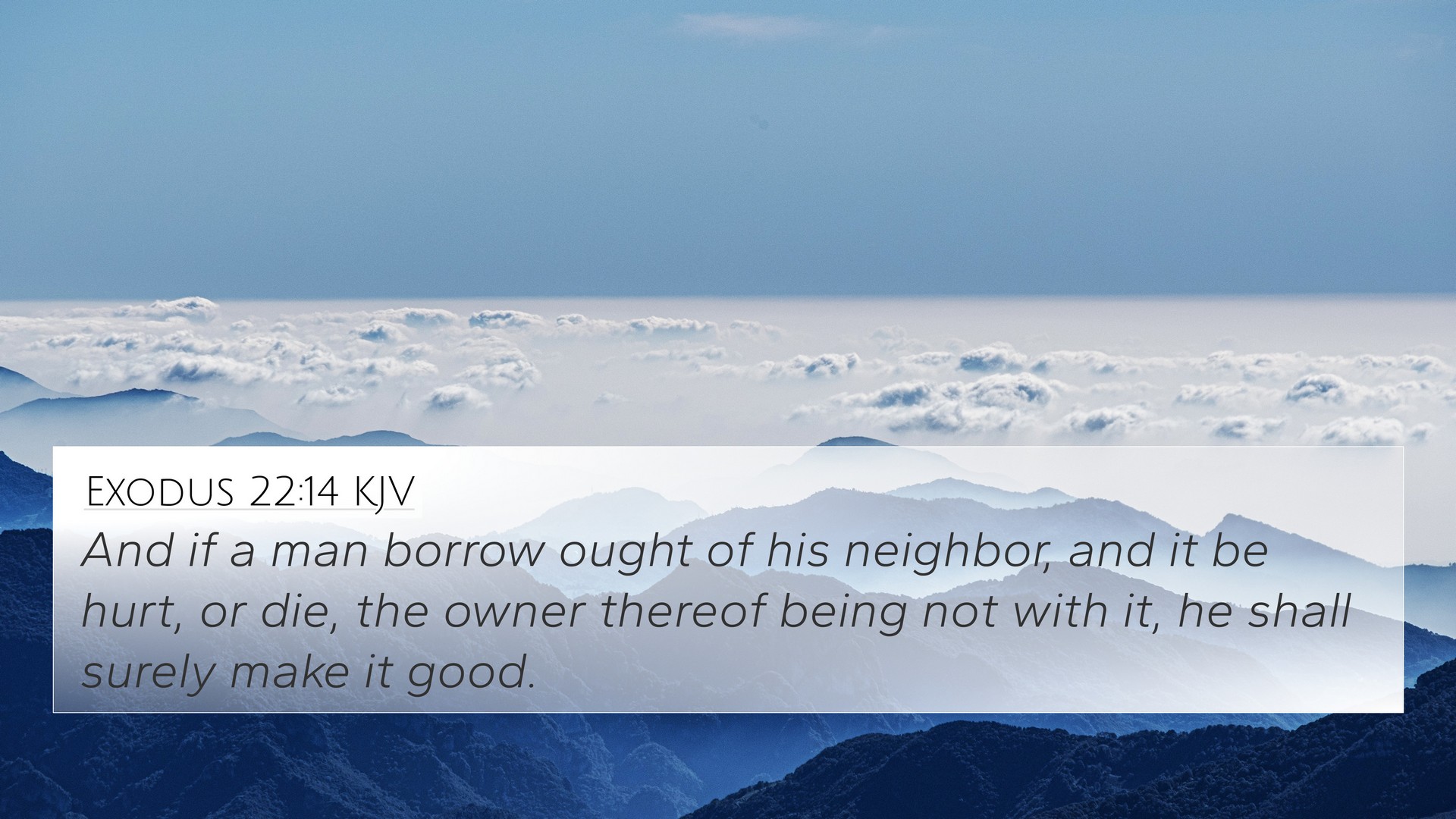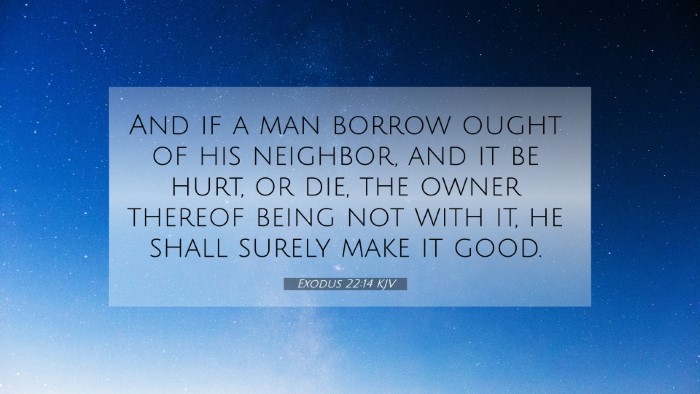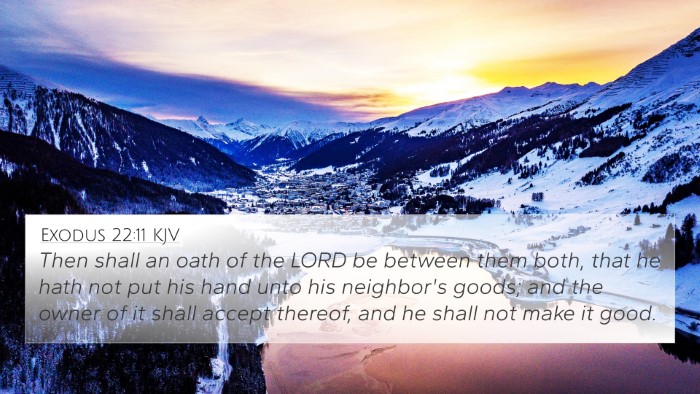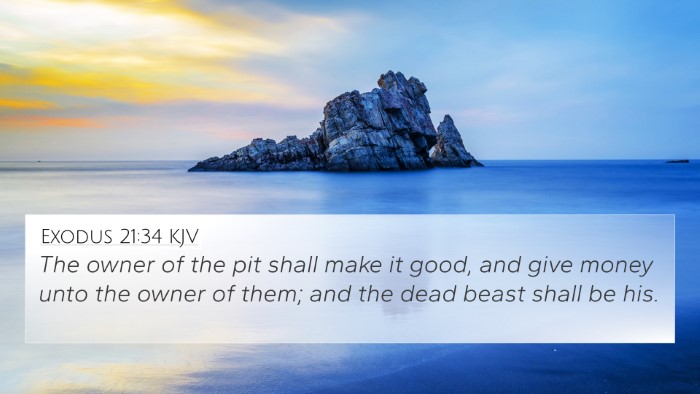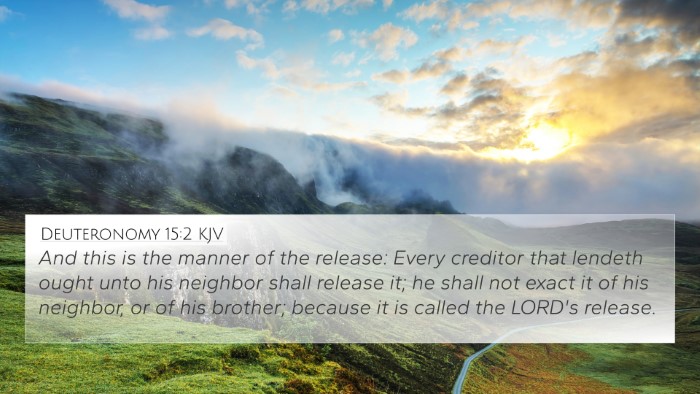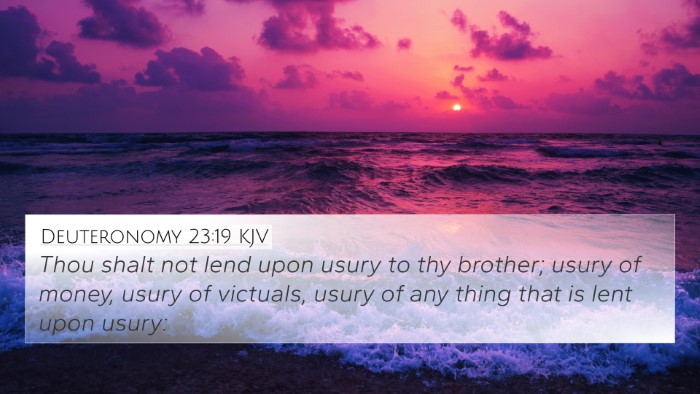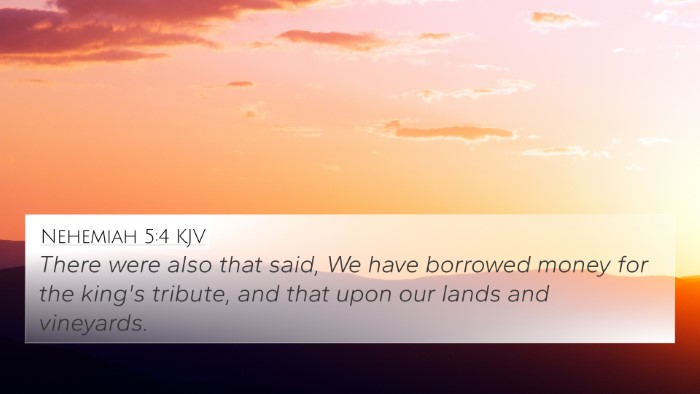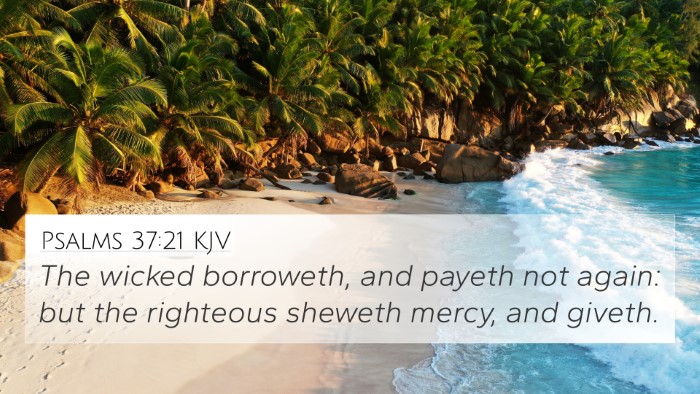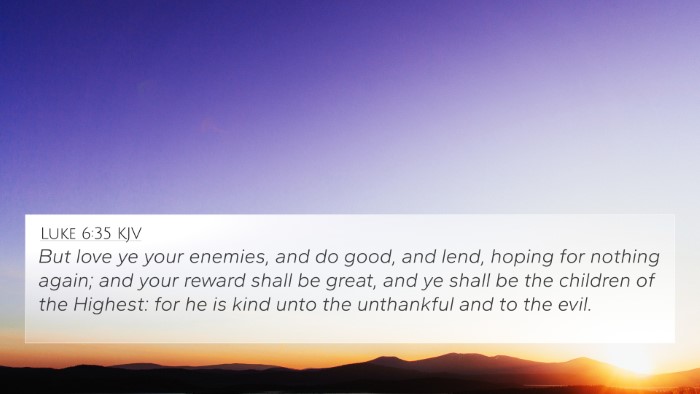Understanding Exodus 22:14
Verse: Exodus 22:14 - "And if a man borrow any of his neighbour's goods, and it be hurt, or die, the owner thereof being not with it, he shall surely make it good."
Summary of Meaning
This verse addresses the responsibility one has when borrowing something from another person. It emphasizes the importance of accountability and the moral obligation to restore or compensate for any loss or damage incurred during the use of another's property.
Commentary Insights
- Matthew Henry: Henry highlights the principle of stewardship and accountability. He notes that borrowing entails a relationship built on trust, and should damage occur, it is the borrower’s duty to repair the loss to maintain that trust.
- Albert Barnes: Barnes explains that this verse enforces the need for a borrower to protect what has been loaned to them. If it gets damaged due to negligence, they must make restitution, illustrating the biblical concept of justice and fairness in community relations.
- Adam Clarke: Clarke points out that this law serves to govern social relations and to prevent disputes arising from borrowed goods. It underscores the necessity of being responsible caregivers and custodians of possessions entrusted to individuals.
Bible Verse Cross-References
Exodus 22:14 can be understood more fully when examined alongside the following verses:
- Exodus 22:15: This verse discusses the responsibility of the borrower if the owner was present when the item was damaged.
- Leviticus 6:2-5: It emphasizes the importance of restitution for stolen property or for damage caused.
- Luke 16:10: Jesus teaches that faithful individuals in small matters will also be faithful in larger matters, highlighting the importance of integrity with borrowed items.
- Romans 13:7: This verse speaks about fulfilling obligations, including financial ones, reinforcing accountability towards others.
- 1 Peter 4:10: Encourages believers to be good stewards of God's varied grace, akin to the stewardship of borrowed goods.
- Matthew 7:12: The Golden Rule encourages treating others' property with the same regard one would desire for their own, underpinning the ethos seen in Exodus 22:14.
- Proverbs 22:26-27: Warns against being a guarantor for debts, emphasizing the caution one should exercise in transactions involving others' goods.
Thematic Bible Verse Connections
Exodus 22:14 reflects broader themes in Scripture regarding:
- Accountability: Each individual is responsible for their actions and the consequences arise from interactions involving goods or services.
- Justice: The need for fairness in dealing with others, a recurring theme throughout biblical texts.
- Community Relations: The emphasis on caring for one another’s property fosters positive and trusting relationships within a community.
Tools for Bible Cross-Referencing
To further explore these themes and connections, various tools for Bible cross-referencing are available:
- Bible Concordance: Helps to find words, themes, and supports the search for related verses.
- Bible Cross-Reference Guide: Offers links and explanations of verses that intersect in meaning or context.
- Cross-Reference Bible Study: A method for examining multiple scriptural references to deepen understanding.
- Trade Bible Reference Resources: Useful for sermon preparation and enhancing personal study.
Conclusion
In conclusion, Exodus 22:14 serves as a vital reminder of our responsibilities to one another regarding borrowed goods. Understanding this verse through various commentaries and linked scriptures enhances our grasp of the underlying principles of accountability and justice in biblical wisdom.
Further Study Suggestions
For a comprehensive understanding, consider:
- How to find cross-references in the Bible: Engage with different translations and study materials.
- Identifying connections between Old and New Testament: Explore how laws like Exodus 22:14 relate to New Testament teachings on restitution and relationships.
- Comparative study of Pauline epistles: Analyze Apostle Paul's teachings on ethical conduct in community and personal responsibility.
